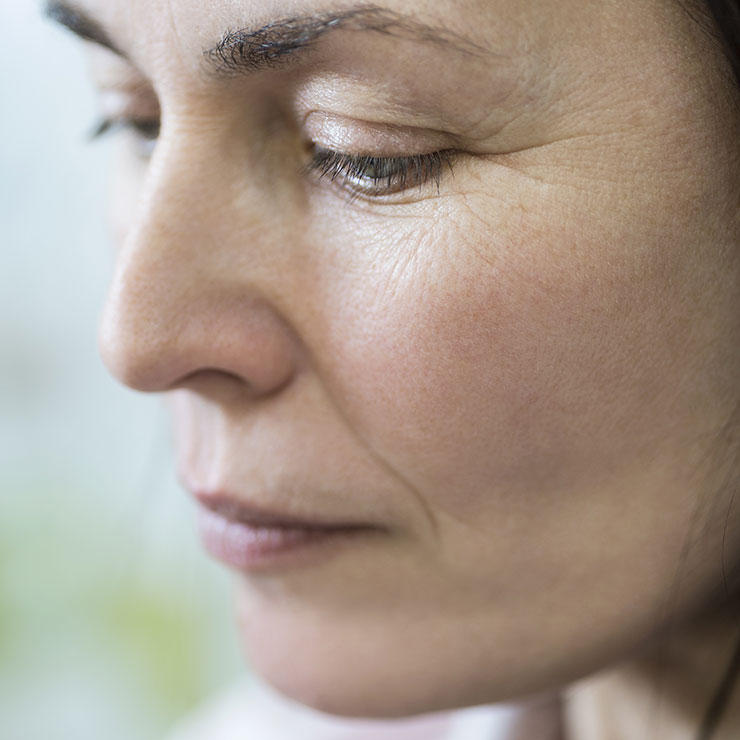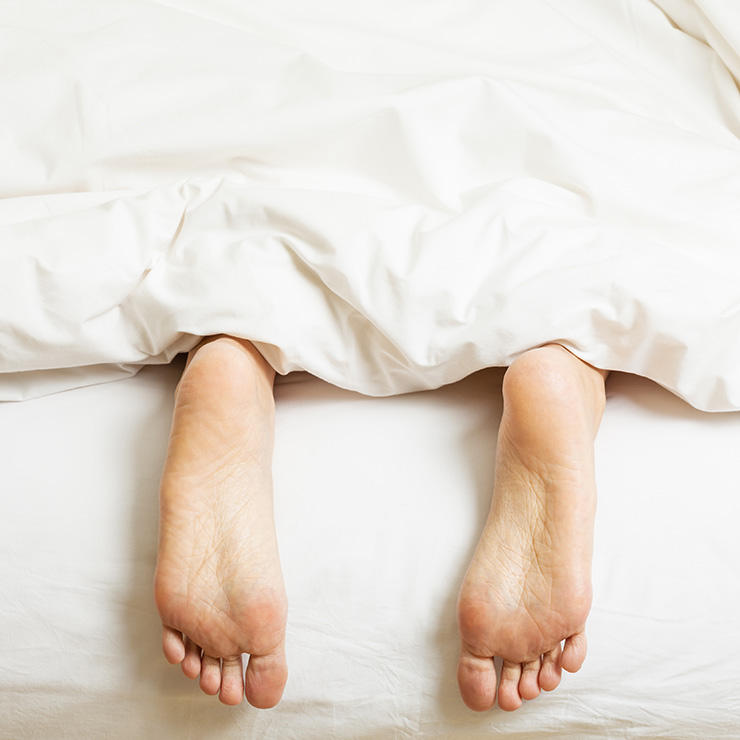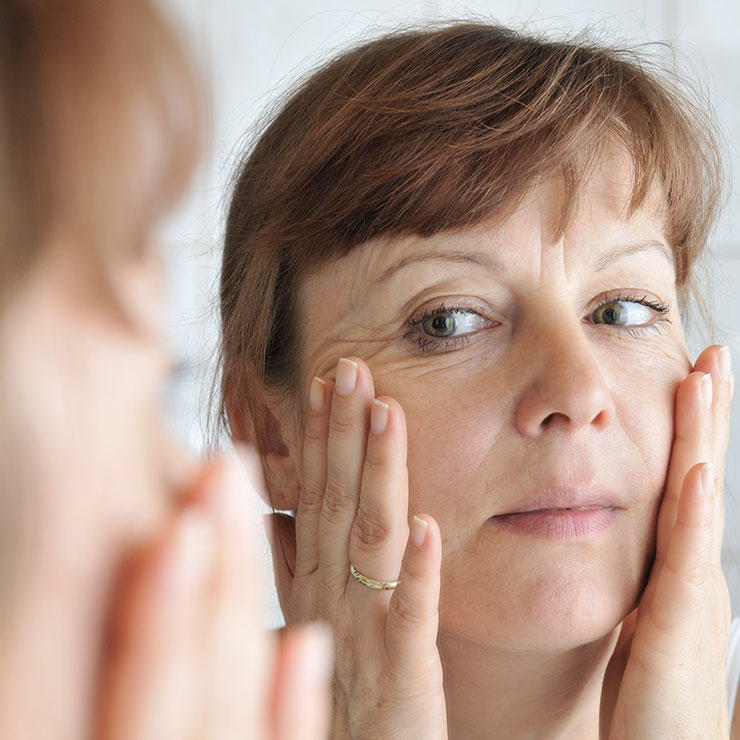When I drop these 50 pounds, my life will be amazing and my troubles will disappear. Who hasn't thought that when starting a diet? The truth is, some aspects of your life will be much better—but there could be a few unpleasant surprises, as well. Starting with:
1. Losing weight doesn't equal happiness.
 2/11
1. Losing weight doesn't equal happiness.
2/11
1. Losing weight doesn't equal happiness.
Yes, setting a goal and reaching it will feel incredible. But don't expect it to fix any problems with your spouse, your job—or yourself. A study from University College London followed nearly 2,000 overweight people for 4 years. The researchers found that people who lost weight were nearly twice as likely to be depressed as people who gained or maintained their weight. Lose weight to feel better and live longer, but seek out a professional counselor for any emotional issues that are troubling you.
MORE: 10 Silent Signals You're Way Too Stressed
2. Your tastes change.
 3/11
2. Your tastes change.
3/11
2. Your tastes change.
As you pack on pounds, your taste buds can become less sensitive, says John Morton, Stanford University's chief of bariatric surgery. This may explain why obese people tend to eat more when looking for satisfaction from their meals, rather than focusing on quality or flavor. In Morton's research, he found that people who lose weight can see their desire for salty foods decline dramatically. (Join Prevention's 21-Day Challenge to lose weight and feel amazing by summer!)
3. Relationships will change.
 4/11
3. Relationships will change.
4/11
3. Relationships will change.
Your weight loss efforts may bring you and your spouse closer together. Or your success could lead to trouble. A study in Health Communication found that when a partner failed to support the other's dietary or exercise changes, the relationship went sour. Another homewrecker: when the dieter badgers her husband to follow suit. Other studies suggest that marriage quality can decline following weight loss surgery. (Here are 7 things you wish your partner knew about your weight loss struggle.)
4. It takes awhile to adjust.
 5/11
4. It takes awhile to adjust.
5/11
4. It takes awhile to adjust.
Now that you've dropped weight, overhauled your wardrobe, and have more energy, you would think your reflection would spark joy. Not necessarily: "When I look in the mirror, I still see a fat girl," says Nicole Zernone, 42, a schoolteacher in New York City who has lost over 85 pounds from her peak weight of 230 pounds. "Logically, I know I'm thinner, but I still see the old me in the mirror." Zernone also finds that habits she formed when she was bigger, like turning her body to fit between restaurant tables or stepping aside in supermarket aisles, persist. "Even though I fit just fine and somebody can pass by me with ease in the store, I still move around like I'm a much larger woman," she says.
5. You'll need more sweaters.
 6/11
5. You'll need more sweaters.
6/11
5. You'll need more sweaters.
That's insulation you're shedding when the fat comes off. Another reason for the chills: When you lose 10% of your body weight, your thyroid may dip temporarily, which slows your metabolism and leaves you more sensitive to cold.
6. Your memory improves.
 7/11
6. Your memory improves.
7/11
6. Your memory improves.
Shedding just 17 pounds helped obese women dramatically improve their scores on memory tests, according to a Swedish study. Scans indicated much higher brain activity, as well, report the researchers. In a study of people who got bariatric surgery, patients' memory improved significantly after just 3 months.
7. You'll sleep better.
 8/11
7. You'll sleep better.
8/11
7. You'll sleep better.
As the pounds come off, you'll find that you have more energy throughout the day. When you're more active, you're more exhausted at night—and that equals better sleep, according to a study in the journal Sleep. Recent research published in the Journal of Clinical Sleep Medicine found that a weight loss–promoting, high-fiber diet led to an easier time falling asleep and a more restful sleep; a high-fat, high-sugar diet resulted in more tossing and turning at night.
8. You might look older.
 9/11
8. You might look older.
9/11
8. You might look older.
Your muscles and bones will thank you for taking a load off, but your skin may not. Fat literally fleshes out your face, smoothing wrinkles. "After I lost weight, I looked in the mirror and couldn't believe how old my face looked," says Pamela Smith Finkelman, who lost 50 pounds at age 58. "The skin just doesn't bounce back like it does when you're younger." In fact, a 2015 study analyzed face-lift results in people who had lost a lot of weight. The researchers ended up suggesting that surgeons replace fat in the face to get a better cosmetic outcome.
9. Your kids will lose weight, too.
 10/11
9. Your kids will lose weight, too.
10/11
9. Your kids will lose weight, too.
Let's face it: Kids learn by example. Researchers have found that when parents lose weight, their kids do as well, according to a study in the journal Obesity. For every point a parent dropped in body mass index, their offspring lost about 25% as much. That may not sound like a lot, but parental weight loss was the only intervention that led to weight loss in both a parent and a child. Counseling, increased exercise, and tutorials had zero effect.
10. You may Feel more stress.
 11/11
10. You may Feel more stress.
11/11
10. You may Feel more stress.
While watching pounds melt away can feel joyous, the burden of maintaining weight loss may be emotionally taxing. The National Weight Control Registry, which tracks people who have lost more than 30 pounds and maintained it for a year, found that people who are able to maintain weight often can only succeed by becoming obsessive. They report continually jumping on the scale and fearing weight returning. This can lead to anxiety and depression, not to mention increased stress. Take pressure off yourself by following a plan that you can sustain over the long term, make exercise a priority, and recruit support from friends and family—that's the healthiest way to sustain your success.
- Prev:How To Lose 10 Pounds After Menopause
- Next:6 Activities That Burn More Calories Than You Think
 2/11
1. Losing weight doesn't equal happiness.
2/11
1. Losing weight doesn't equal happiness.
 3/11
2. Your tastes change.
3/11
2. Your tastes change.
 4/11
3. Relationships will change.
4/11
3. Relationships will change.
 5/11
4. It takes awhile to adjust.
5/11
4. It takes awhile to adjust.
 6/11
5. You'll need more sweaters.
6/11
5. You'll need more sweaters.
 7/11
6. Your memory improves.
7/11
6. Your memory improves.
 8/11
7. You'll sleep better.
8/11
7. You'll sleep better.
 9/11
8. You might look older.
9/11
8. You might look older.
 10/11
9. Your kids will lose weight, too.
10/11
9. Your kids will lose weight, too.
 11/11
10. You may Feel more stress.
11/11
10. You may Feel more stress.




